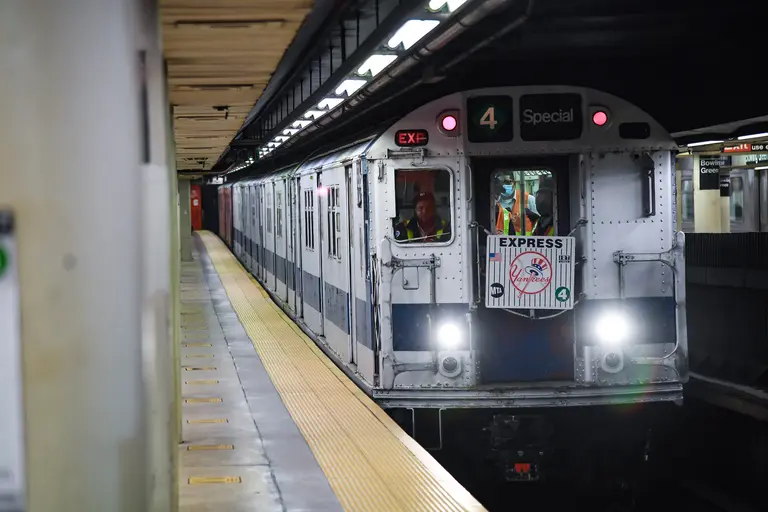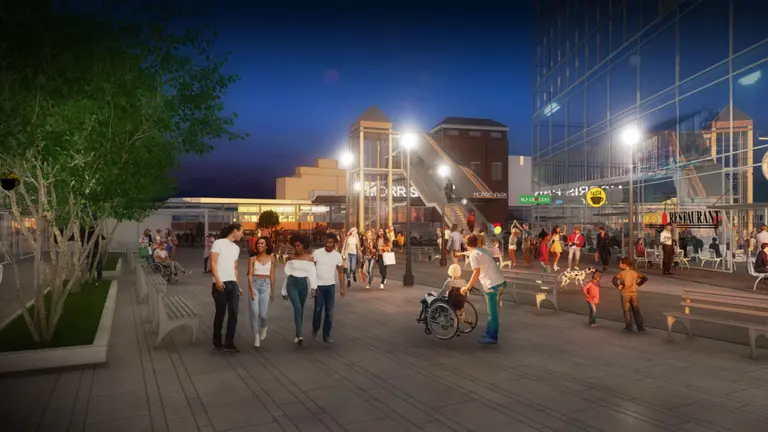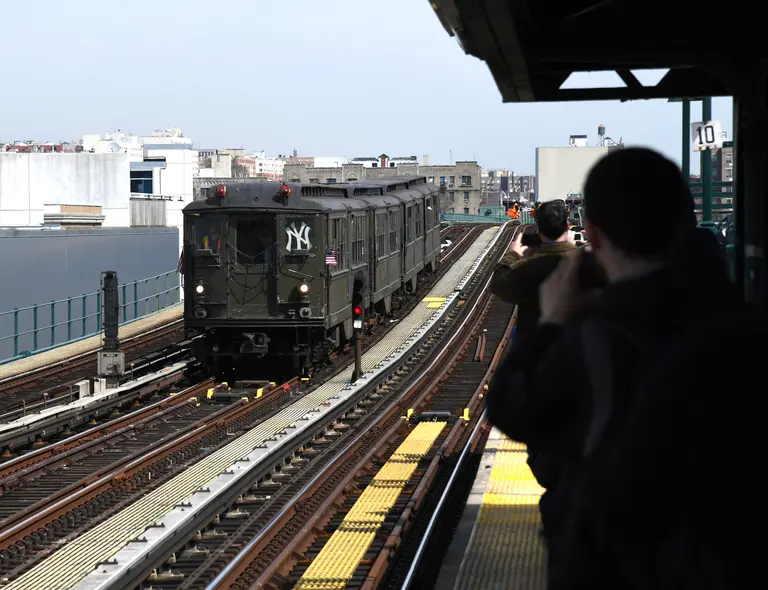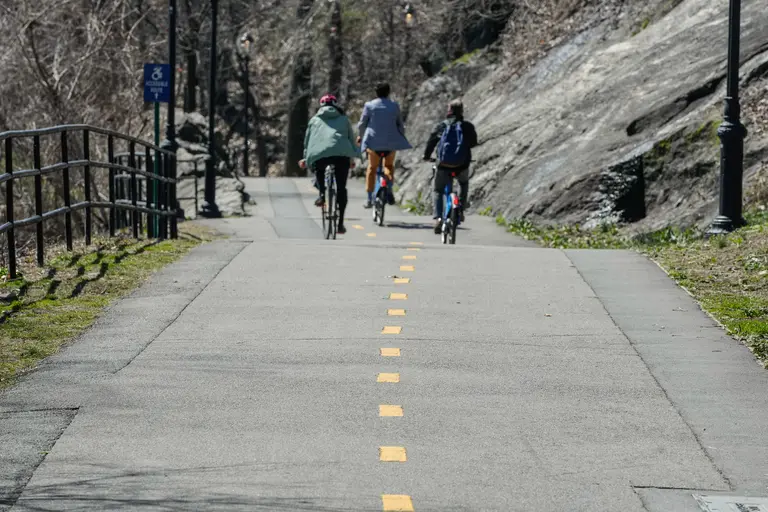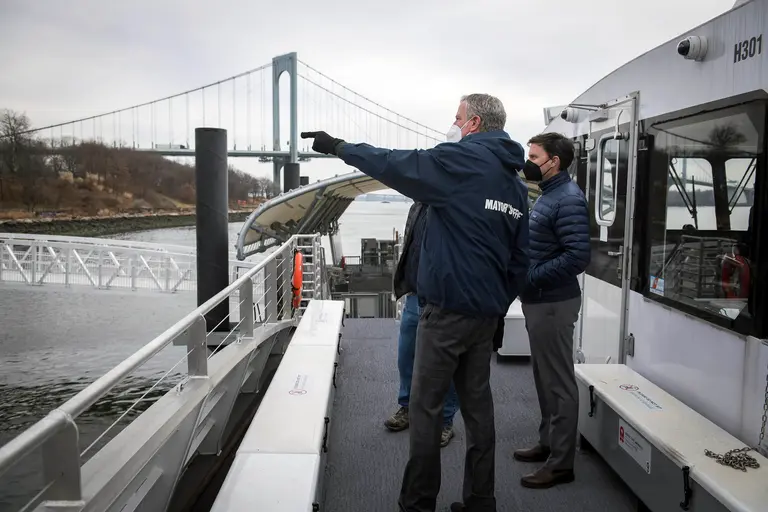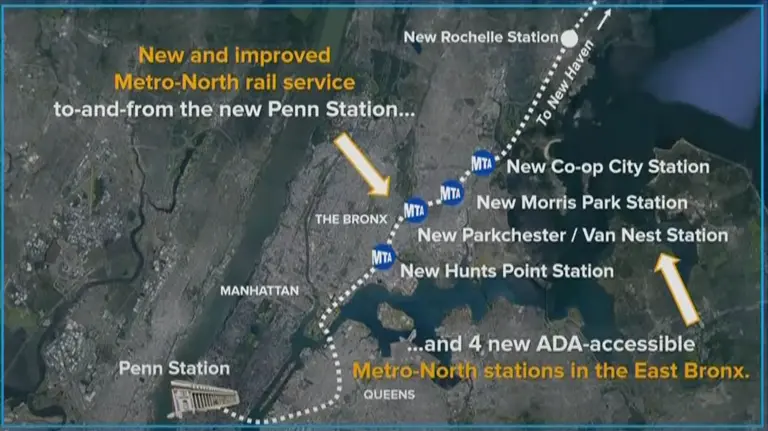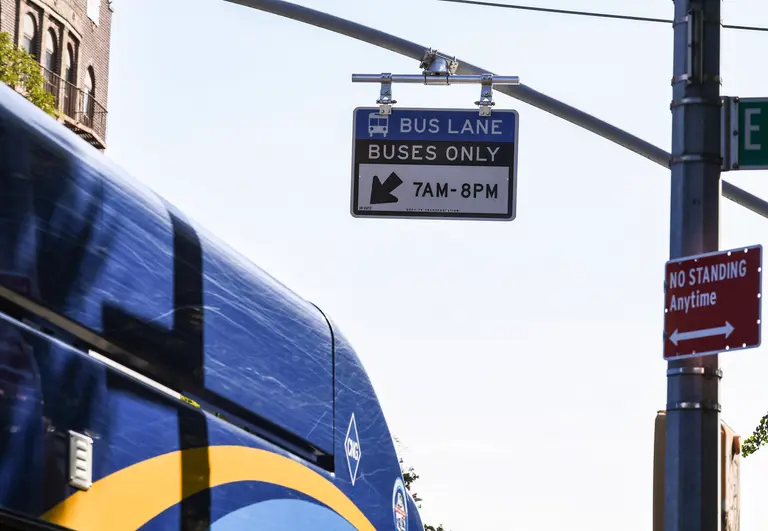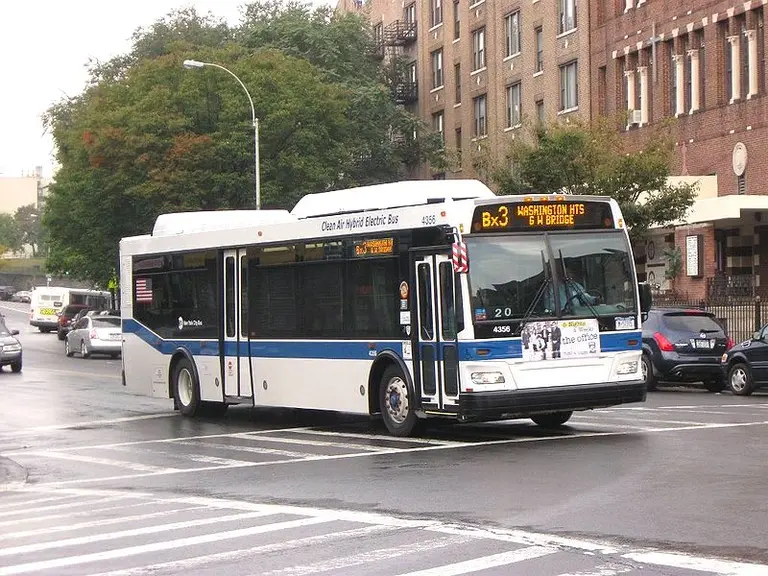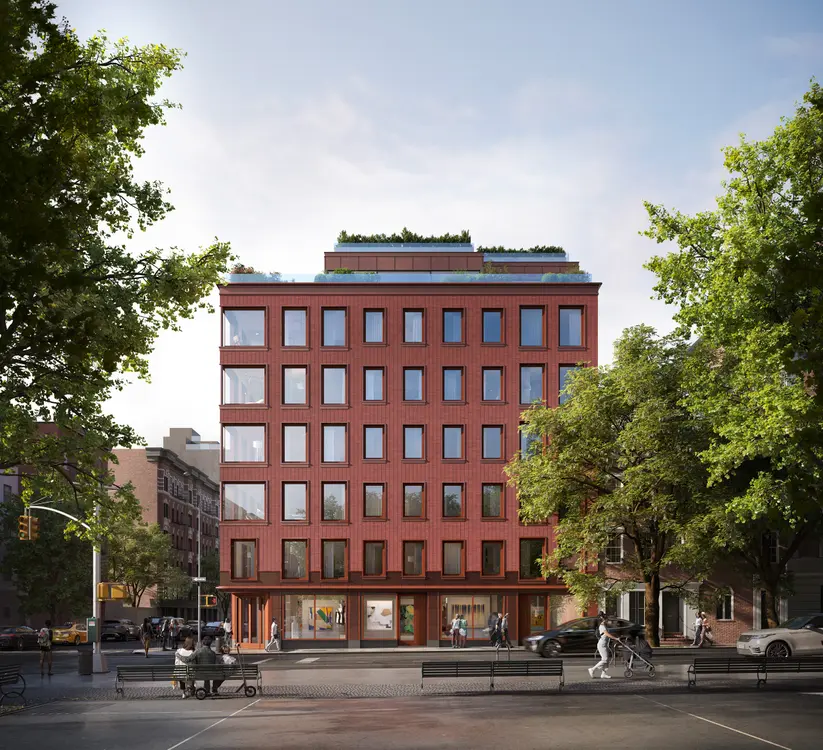Plans for new Metro-North stations in the Bronx move forward with first community meeting
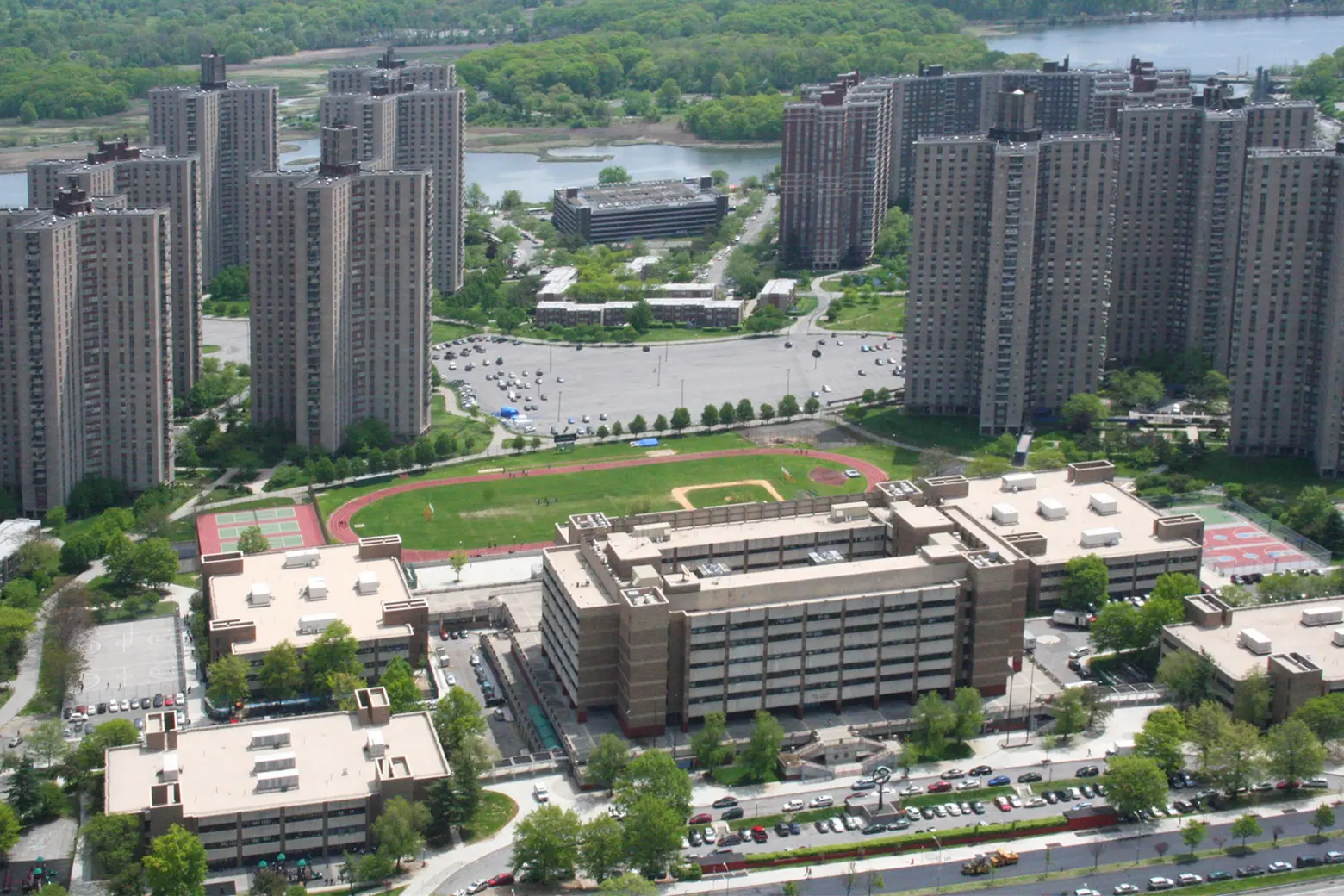
Aerial view of Co-op City via Wiki Commons
Plans to develop four new Metro-North Railroad stations in underserved areas of the Bronx are moving forward and beginning to engage the local community in the process. Bronx borough president Ruben Diaz Jr. and Westchester county executive George Latimer hosted the first Community Council meeting for the project last week, providing an overview of the broader Penn Station Access plan and kicking off discussions with key stakeholders. The council is composed of representatives from civic organizations and local businesses from the East Bronx and Westchester.
“There are so many direct and indirect benefits to Penn Station Access. What this community council will ensure is that we are hearing from everyone,” Diaz Jr. said in a press statement. “We want to hear the concerns and the questions of the businesses, the major organizations, and especially the residents and commuters who will be served by this expansion.”
“We want to keep the community involved and informed every step of the way because access to Penn Station is advantageous for those who live in Westchester along the Sound Shore and need to commute to the Bronx or parts of Manhattan for work,” Latimer added. “This project also makes these communities even more attractive to live in and will raise property values in the process.”
As 6sqft previously reported, the expansion was first announced in 2014 as part of the Penn Station Access project that will link Penn Station to the New Haven Line. The four new stations in the Bronx—at Hunts Point, Parkchester/Van Nest, Morris Park, and Co-op City—are planned to open after the PSA project is completed. The stations will ease commute times for those living in the east and south Bronx, bring new residents into the area, and make it possible for people to consider jobs in Connecticut and Westchester.
A $35 million contract for “preliminary engineering and design” was approved in January. The MTA’s 2015-2019 Capital Program includes an initial $695 million investment in the plan, with $250 million in state resources coming from Empire State Development. To complete the project, the MTA hopes for additional funding in the 2020-2024 Capital Program. The federal environmental review process for the PSA is currently underway and a draft is expected to be made public within the first quarter of 2020.
RELATED:




